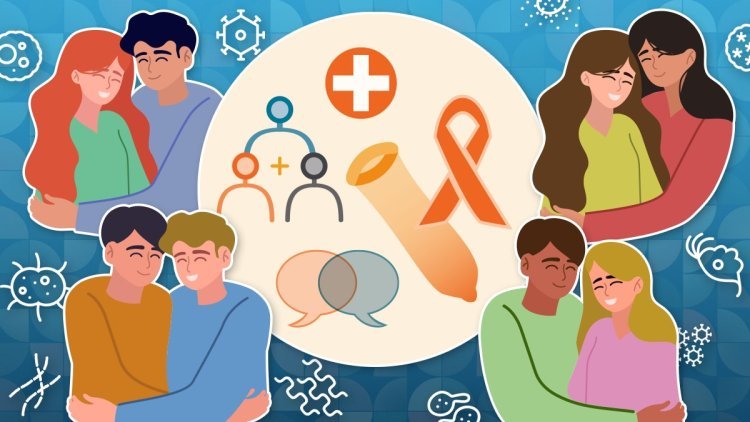Sexually Transmitted Infections (STIs): Prevention & Treatment
Learn about the prevention and treatment of sexually transmitted infections (STIs). Find information on common STIs, symptoms, and how to protect yourself and your partner.

Sexually Transmitted Infections (STIs): Prevention & Treatment
Introduction
Sexually transmitted infections (STIs) are common and can affect anyone who is sexually active. It's essential to understand how STIs are transmitted, the available prevention methods, and the treatment options available. This article will explore the most common STIs, how to protect yourself and your partner, and how to seek treatment if needed.
What Are STIs?
Sexually transmitted infections (STIs) are infections that are primarily passed from one person to another through sexual contact. STIs can be caused by bacteria, viruses, or parasites. While some STIs cause visible symptoms, others may be asymptomatic, meaning there are no noticeable signs of infection. This makes regular testing and communication with your partner essential for sexual health.
Common Types of STIs
Some of the most common STIs include:
- Chlamydia: A bacterial infection that can lead to serious complications if left untreated. Symptoms may include abnormal discharge and pain during urination.
- Gonorrhea: Another bacterial infection, similar to chlamydia, that can cause pain during urination and unusual discharge.
- Human papillomavirus (HPV): A viral infection that can cause genital warts and may increase the risk of certain cancers.
- Herpes: A viral infection that causes sores and blisters in the genital or mouth area.
- Syphilis: A bacterial infection that can cause sores, rashes, and long-term health problems if left untreated.
- HIV: A viral infection that weakens the immune system and can lead to AIDS if not properly managed.
How Are STIs Transmitted?
STIs are primarily spread through unprotected sexual contact, including vaginal, anal, and oral sex. They can also be transmitted through contact with infected bodily fluids, such as semen, vaginal fluids, blood, and in some cases, saliva. Sharing needles or other drug paraphernalia can also spread certain STIs, such as HIV and hepatitis. Some STIs, like herpes and HPV, can be transmitted even if no symptoms are present.
Prevention of STIs
Prevention is key to protecting yourself and your partner from STIs. Here are some of the most effective prevention methods:
- Condoms: Condoms are one of the most effective methods of preventing STIs during vaginal, anal, and oral sex. Make sure to use them correctly every time you engage in sexual activity.
- Regular Testing: Regular STI testing, especially if you have multiple partners or engage in unprotected sex, can help detect infections early and prevent the spread to others.
- Vaccination: Vaccines are available to prevent certain types of STIs, such as the HPV vaccine, which can help protect against cervical cancer and genital warts.
- Communication: Open and honest communication with your sexual partner(s) about STI testing, protection, and prevention is essential to maintaining a healthy relationship and reducing risks.
- Mutual Monogamy: Limiting sexual activity to one partner who has been tested and is free from STIs is an effective way to reduce the risk of infection.
Treatment of STIs
Many STIs are treatable with medication, although the treatment options vary depending on the infection. Some STIs, such as chlamydia and gonorrhea, can be cured with antibiotics. Others, like herpes and HIV, can be managed with antiviral medications to reduce symptoms and prevent transmission. It's essential to seek medical treatment if you suspect you have an STI, as untreated infections can lead to serious health problems.
Conclusion
Sexually transmitted infections are a serious health issue that can affect anyone who is sexually active. Understanding how STIs are transmitted, how to prevent them, and how to seek treatment is vital for maintaining sexual health. Practicing safe sex, regular testing, and communication with your partner are essential components of STI prevention and overall well-being. If you think you may have an STI, seek medical advice as soon as possible for diagnosis and treatment.
2025 © Anymovies, All rights reserved
What's Your Reaction?











